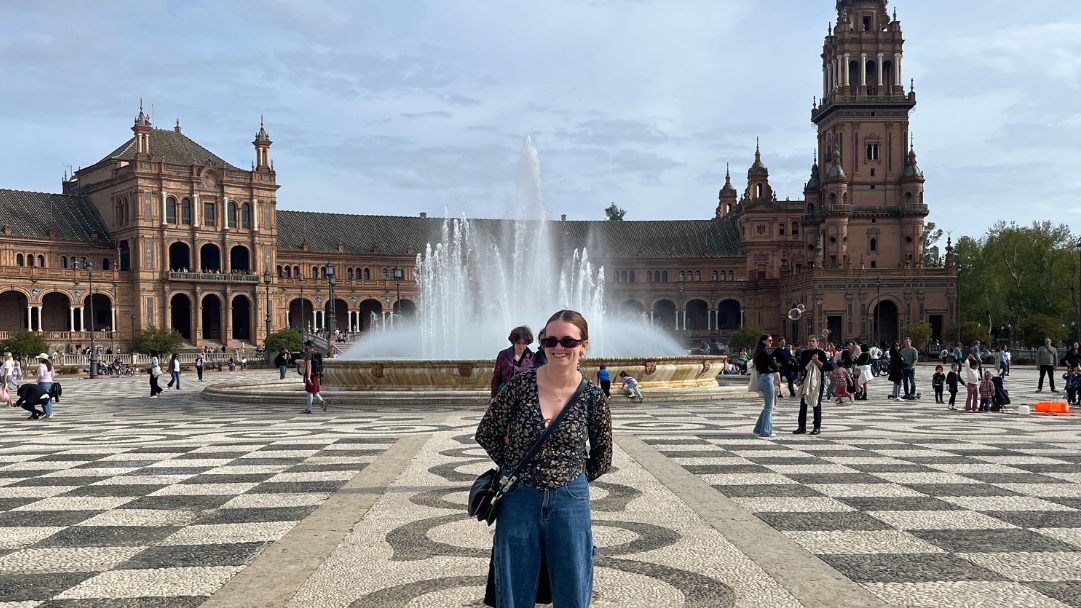
I’m Maria, a French and Spanish student who has just finished up a work placement in the South of Spain. As a teacher in a language academy in a town of less than 30,000 people, my year definitely didn’t subscribe to any expectations about the socialising or partying that should happen on a year abroad. Presumptions that only increased when I told people that this town is in the Marbella suburbs #nocarbsbeforemarbs. Instead, I befriended the baristas at my local coffee shop, said hi to the students’ parents I saw around town and learnt to cherish – and even relish in – my independence. Also, this is not to sound pick me because it’s not to say at times I didn’t want a large friendship group or to go on a messy night out. But instead, I learnt to live with what I’d been dealt – which turned out to be exactly what I needed.
WORK
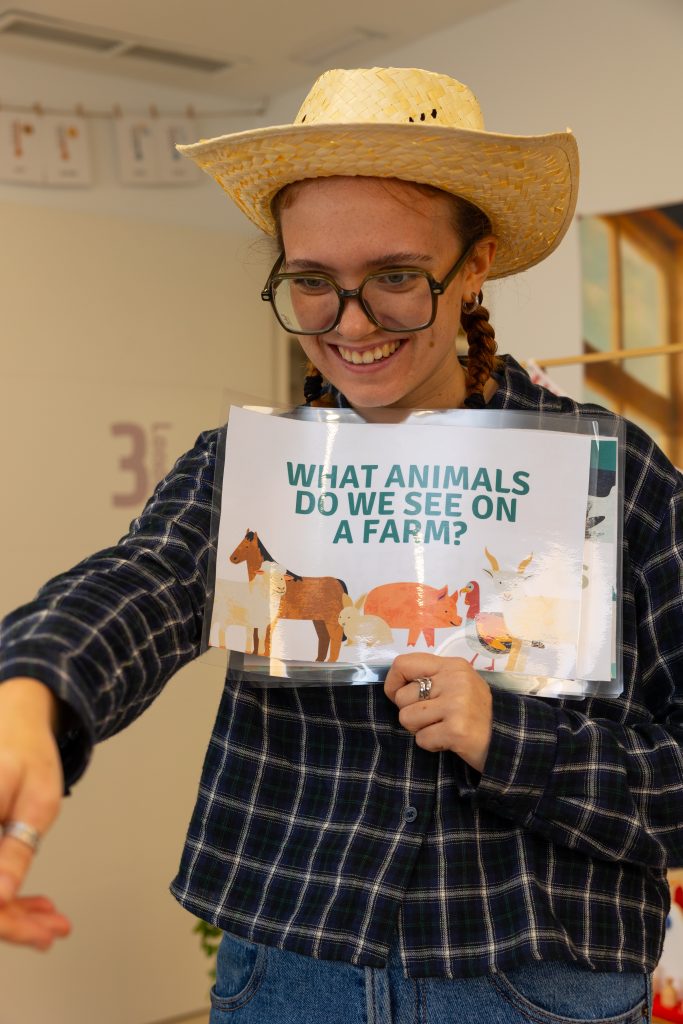
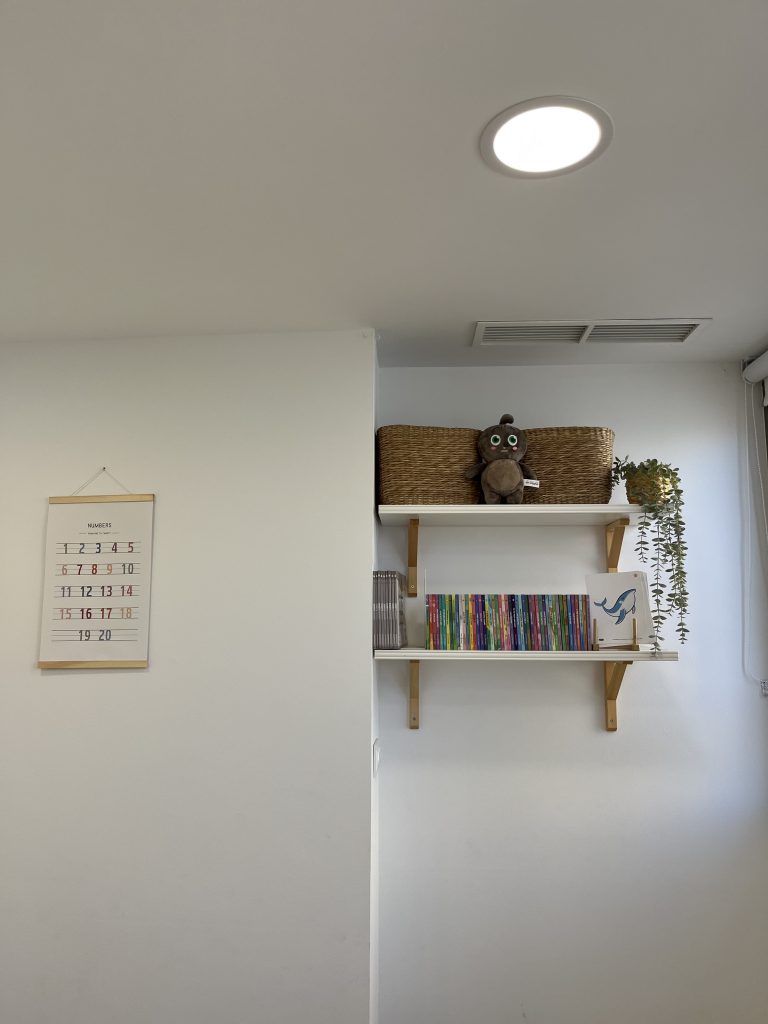
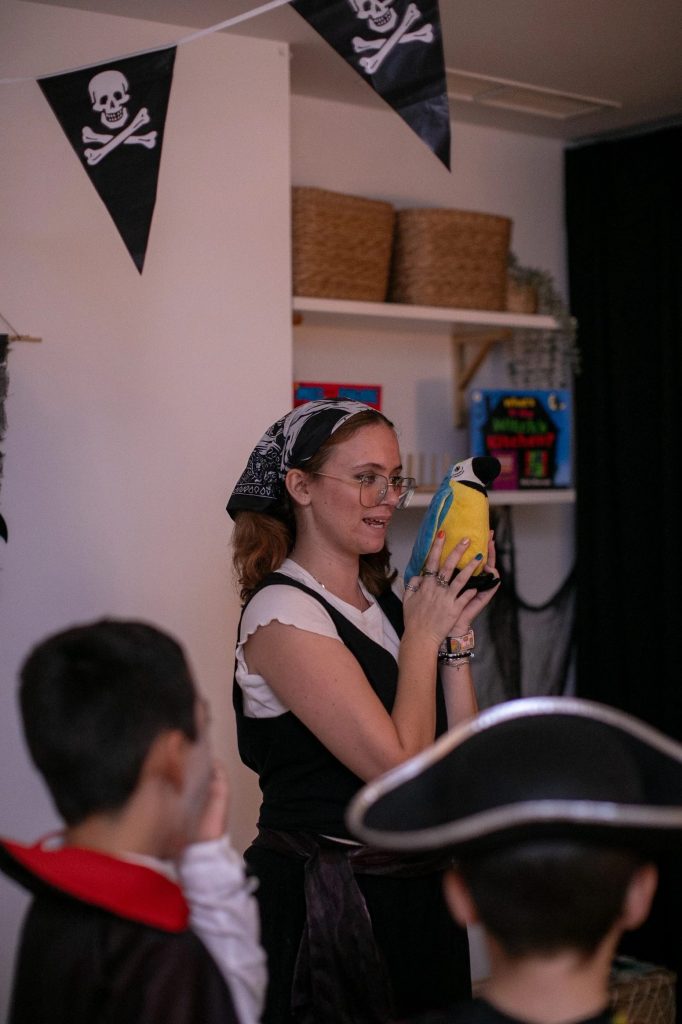
As well as including a lot more professional photos and full out costumes than I ever could have predicted, my work placement also surpassed my expectations in so many other ways. If I’m telling the truth, this job wasn’t my first choice, my first job offer fell through due to visa complications (thank you, Spanish bureaucracy) so I rather last minute applied frantically to a bunch of random jobs and accepted one of the first ones that gave me an offer. The stress of which is all part and parcel of me deciding British Council and study abroad both weren’t for me and consequently having to scramble through the work placement process. But man am I glad I made that choice.
I spent 30 hours a week inside this teeny academy so I was very lucky to have been surrounded by the most kind and supportive group of people. Everyone else had a degree in both Filogía Inglesa and education, so I definitely felt like the pressure was on but turns out they all wanted nothing but the best for me and did anything in their power to help me achieve that. Luckily, I was already both qualified and experienced in teaching ESL so I wasn’t completely thrown into the deep end, although the first few weeks felt like it at times as I was getting the hang of managing my students independently- the eldest of which were closer in age to me than my coworkers.
Very quickly, I fell into the flow of things, and being appointed as speaking coordinator I found myself confidently advising my experienced coworkers on what should be done. At the end of each semester (February and June), my progress was really put to the test when it came to parent-teacher conference evening. After intensively writing out 60 progress reports and thorough notes on each student as well as a pep talk from my boss reassuring me that my Spanish was more than sufficient to effectively communicate with the students’ guardians; I successfully muddled my way through 3 hours of back-to-back meetings. Not only did I feel pride in being able to gush about my fabulous students and everything they had achieved, it turned out it also became a feedback session for me with parents thanking me for the impact I’ve had on their child. I will admit, at the final meeting in June, one mum successfully brought me to tears as we were reminiscing over her son’s evolution over the course of the year as she profusely thanked me and I internally reflected on my own personal development.
Safe to say, I 100% recommend undertaking a work placement on your year abroad. Whilst it might initially be a more complicated progress, the personal connections and growth make it more than worth it.
Travel

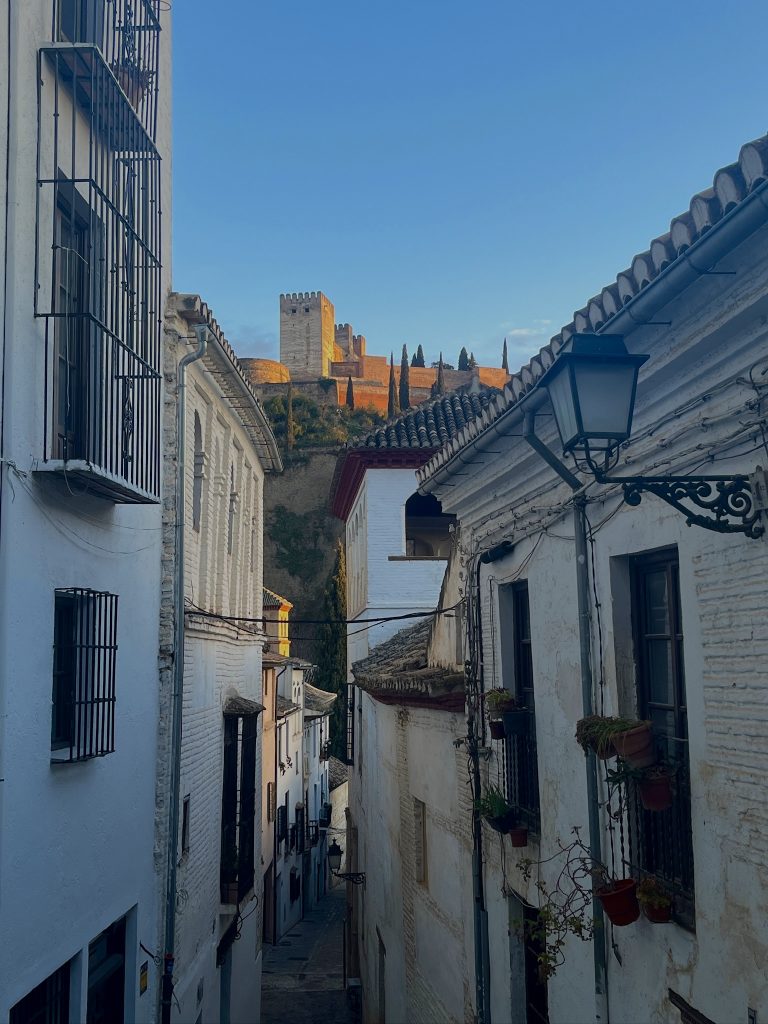
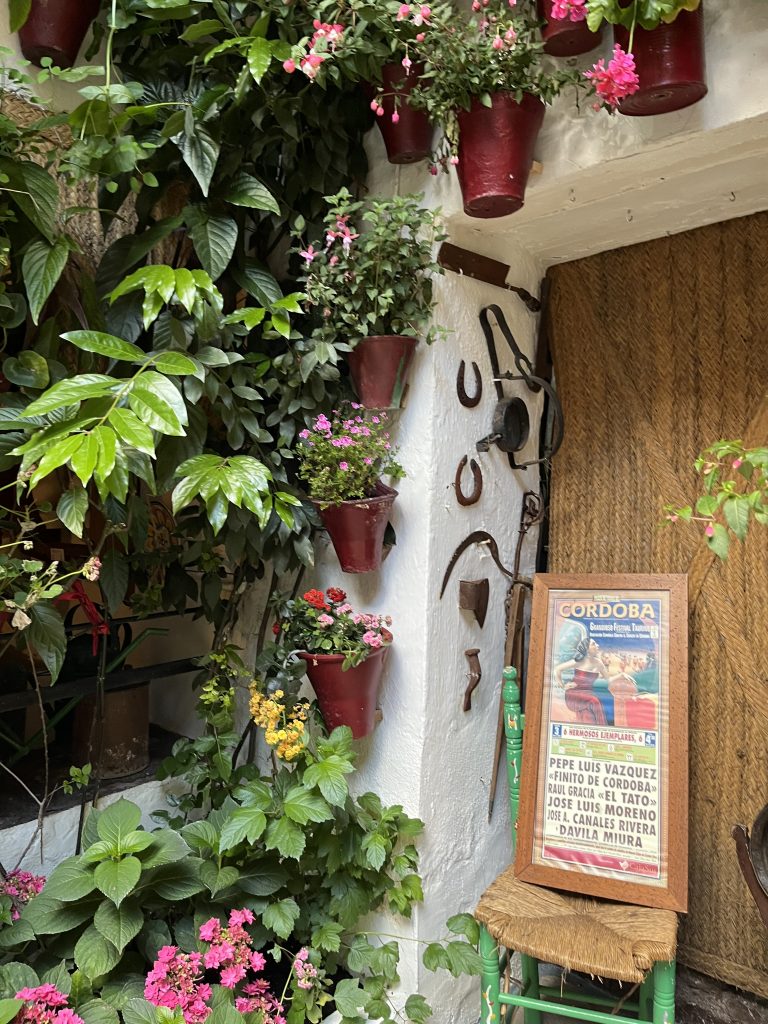
One bonus of British Council or a study placement, is the 3-day weekends/more flexible schedule, which I didn’t have at my 5-day a week job. Luckily, Spain has many a bank holiday to take advantage of, and I was fortunate enough to have a fairly flexible work-day on Friday – sometimes able to work in the mornings or from home which my boss tried to implement as often as she could as she was very intent on me seeing every corner of Spain. Also, starting work at 3pm meant I got very accustomed to a 7am bus/train/plane on a Monday morning.
Aside from a trip to Copenhagen to visit a friend also on her year abroad (definitely monopolise on your friends living in different places), I took advantage of cheap travel within Spain mainly exploring my region, Andalucía, which I became very patriotic (can you be patriotic for a region?) of. These trips included: Ronda, Gibraltar, Granada, Sevilla, Córdoba, Valencia, Barcelona and, Madrid. Whilst on some trips I was accompanied by family, friends or my girlfriend, for the majority, I dabbled in solo travel and revelled in going on strolls, to restaurants, museums and events in these new cities on my own schedule. Don’t be put off by the fear of being alone – you can make amazing memories even in the absence of other people.
Language
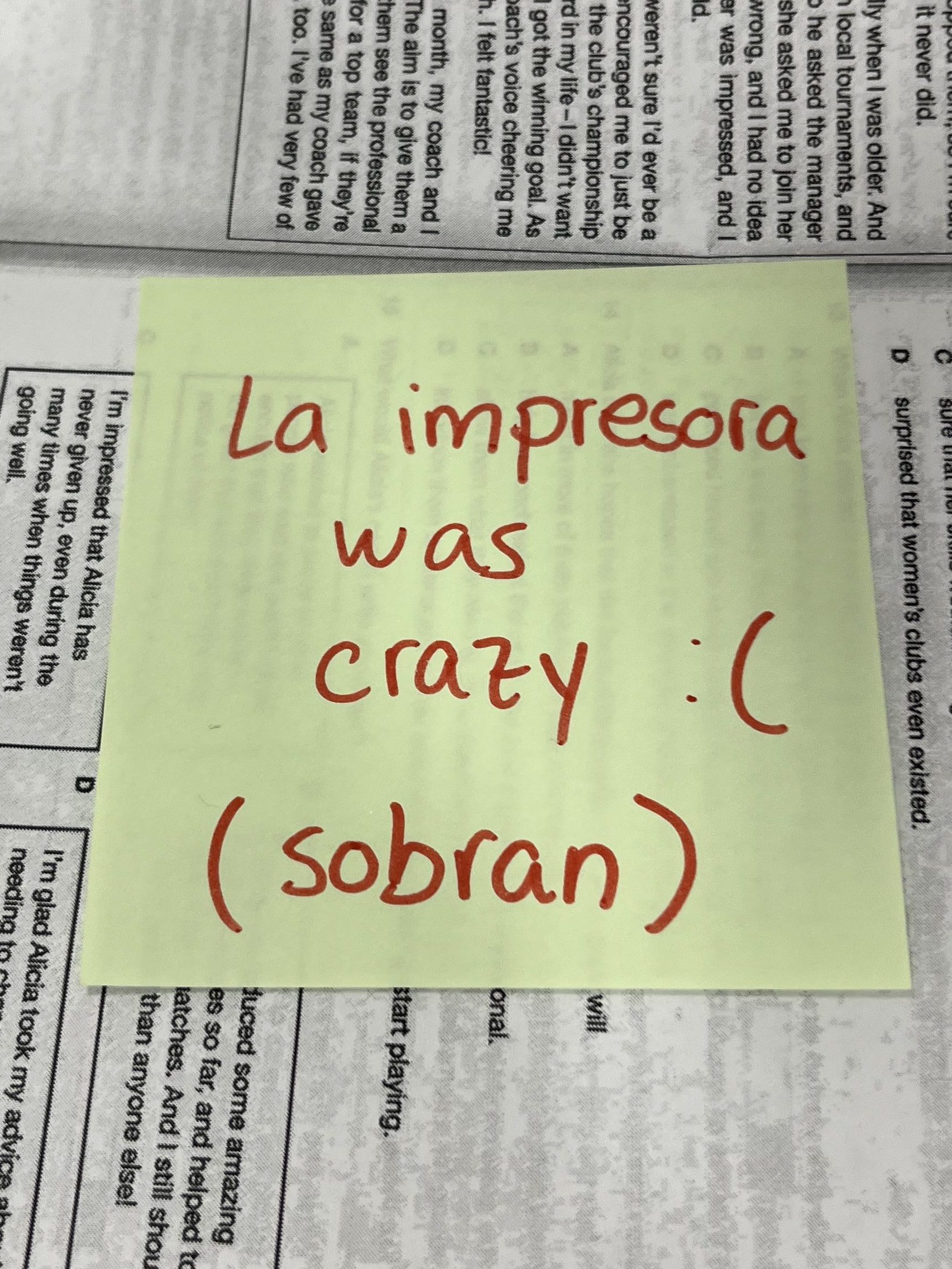
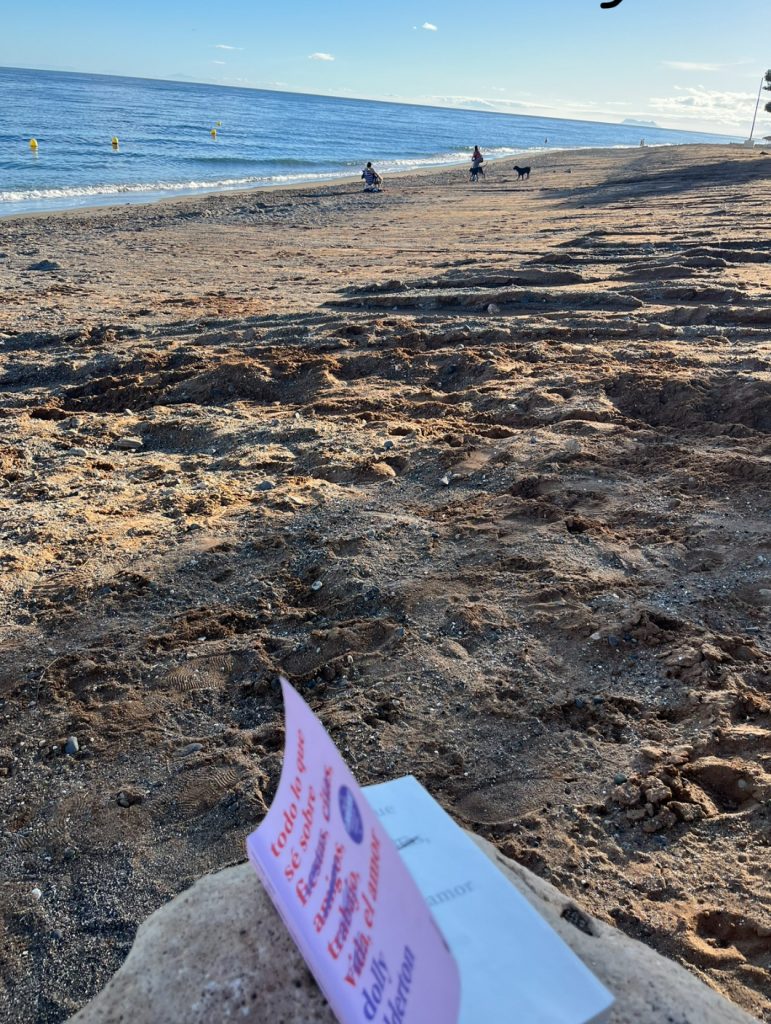
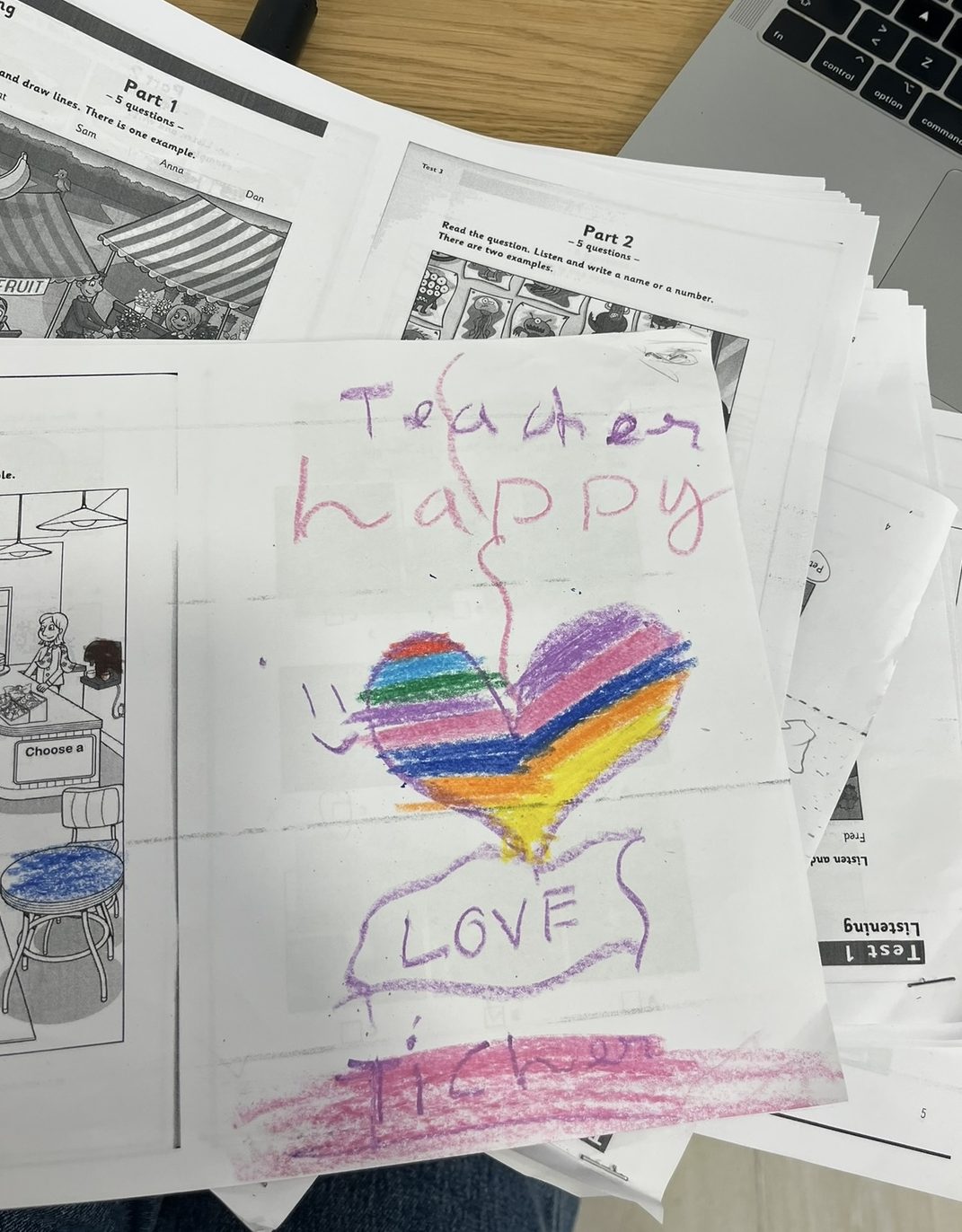
It’s difficult to not compare your year abroad experience with other people, despite any awareness of how silly this is. A large way I found myself doing this, even before the year started, was to do with linguistic development. I was overly aware of the fact that whilst my peers attending university were still taking structured language classes to help the progress of their language skills, I was solely dependent on acquisition from my day-to-day life. Although I am aware I could have taken some Spanish lessons, budget and time wise that didn’t end up working out for me, which wasn’t as world-ending as I agonised that it would be. Instead, I took advantage of everything around me being in Spanish – from only reading books in Spanish, watching the TV shows that my coworkers were talking about, entertaining conversations with complete strangers to small things such as always requesting the Spanish menu in restaurants.
Living on the Costa del Sol meant that people were quite accustomed to interacting with people with 0 Spanish, meaning that I occasionally had to fight to maintain the Spanish conversation after they picked up on my accent. But over the course of the year this became a lot less common. From the first few weeks when I would google translate any interaction before it happened and report back excitedly when they wouldn’t “English me” if I slipped up on some words or my accent became super heavy to the end where I would confidently volunteer to translate for tourists struggling to understand the Spanish public transport system or give directions to Spanish people who had evidently clocked me as a local. It took me a while to realise that no one was switching to English any more, and I would confidently walk into an unknown situation with my phone away and SpanishDict or WordReference unopened.
If anyone needs a sign – take the jump, go to the unknown place, take yourself out of your comfort zone. And enjoy it!!!
